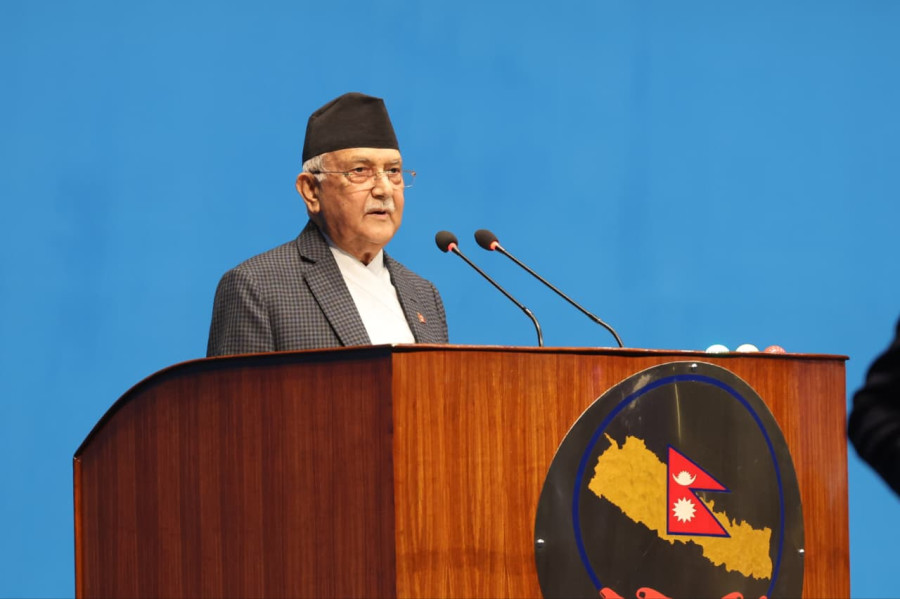National
Medics from security agencies deployed to contain Birgunj cholera outbreak, PM Oli tells House
The prime minister expresses sorrow over deaths and says the government is investigating the source of the outbreak.
Post Report
Prime Minister KP Sharma Oli has said that doctors and equipment from all the security agencies–the Nepali Army, Nepal Police and the Armed Police Force–will be deployed in Birgunj, Parsa, to contain the ongoing cholera outbreak.
Addressing the House of Representatives on Friday, Oli said a Cabinet meeting approved the decision earlier in the day.
He expressed sorrow over the deaths of three people and said the government is taking all necessary steps to identify the source of the outbreak.
The prime minister said that patients are receiving free treatment at Narayani Hospital.
Three people have died and over 624 have been infected so far, with more than 30 in intensive care and nearly 300 hospitalised. The National Public Health Laboratory has confirmed that Vibrio cholerae O1 Ogawa serotype is responsible for the outbreak.
Health workers in the affected areas have reported that the disease has spread to adjoining areas and the neighbouring Bara district as well. Public health officials say containing the spread of cholera in communities remains a major challenge.
While authorities have taken control measures, ensuring safe drinking water and preventing transmission from infected patients has become challenging.
Experts have warned that the Birgunj outbreak is the largest since Jajarkot in 2009, exposing critical gaps in the government’s preparedness, water and sanitation infrastructure, and disease response system.
Poor sanitation and hygiene have made the country highly vulnerable to waterborne diseases, including diarrhoea, dysentery, typhoid, hepatitis, and cholera, especially during the monsoon season.
The Epidemiology and Disease Control Division, along with the World Health Organisation, is coordinating preventive measures and guiding provincial and local health authorities.
A WHO team of senior officials is scheduled to visit the affected areas to assess the situation and consider vaccination if the spread continues. Health experts emphasise that public awareness, health education, and investment in water and sanitation are crucial to containing the outbreak.
The Health Ministry has previously administered cholera vaccines in Kapilvastu, Rautahat, and Kathmandu to prevent the further spread of the disease in affected areas. Authorities are urging people to take precautions, avoid contaminated water, and follow hygiene practices to reduce the risk of infection.




 16.12°C Kathmandu
16.12°C Kathmandu













